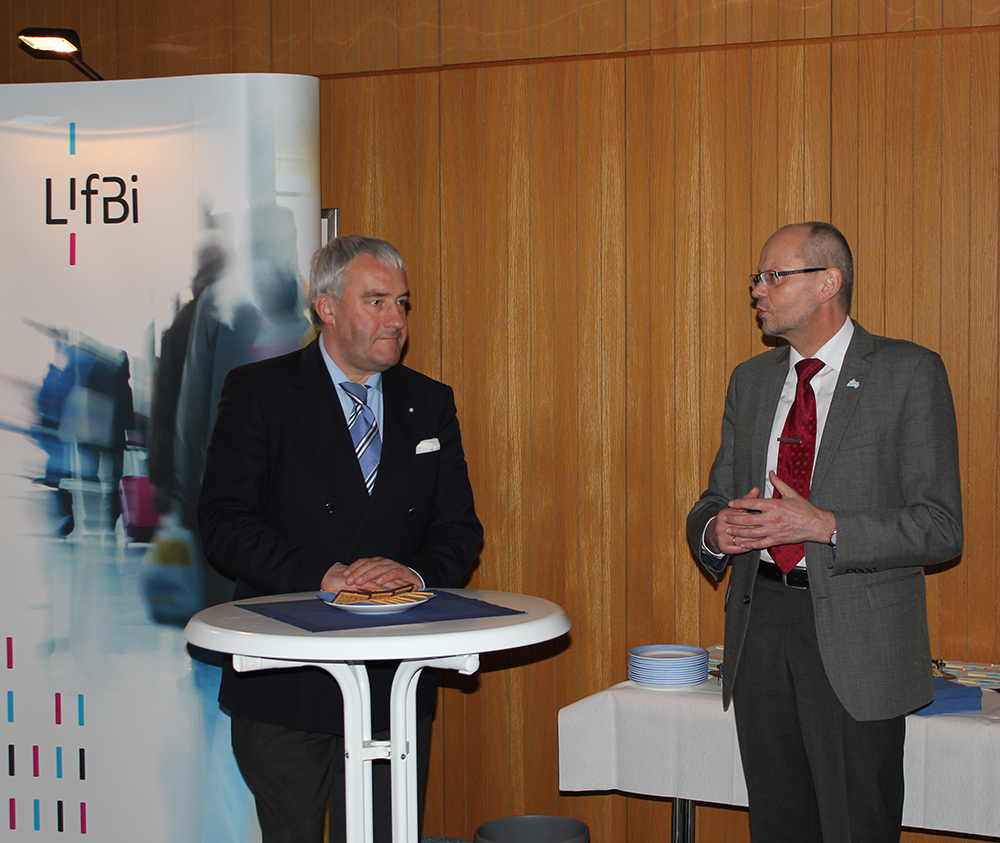On Thursday, February 27, Bavarian State Minister for Education and Cultural Affairs, Science and the Arts, Dr. Ludwig Spaenle, paid a visit to the Leibniz Institute for Educational Trajectories (LIfBi) at the Otto-Friedrich-University in Bamberg. Minister Dr. Spaenle has accompanied and supported the National Educational Panel Study (NEPS) for years and maintains regular contact. Yet still, his visit on February 27 marked a special occasion for two reasons: It was the first visit by Dr. Spaenle to this educational research institution in his role as Minister with a joint responsibility for both education and science. At the same time, this was also his first call on the newly founded Leibniz Institute at the University of Bamberg, which had been launched in January. As of the New Year, the NEPS is being carried out by the Leibniz Institute for Educational Trajectories at the Otto-Friedrich University in Bamberg. Among the 60,000 study participants, and 40,000 additionally interviewed people from their respective social surroundings, this biggest German educational study is known by the name of “Bildungsverläufe in Deutschland” (Educational Trajectories in Germany).

Dr. Ludwig Spaenle, Bavarian State Minister for Education and Cultural Affairs, Science and the Arts in conversation with Prof. Dr. Hans-Günther Roßbach, Director of LIfBi.
After a short introductory speech by the Director of LIfBi, Prof. Dr. Hans-Günther Roßbach, Dr. Christian Aßmann gave a short presentation concerning “Representative samples—A keystone of educational research in the NEPS”. In his talk, Dr. Aßmann pointed out how much scientific effort is connected to drawing representative samples that reflect the situation of the population as exactly as possible. NEPS surveys six age brackets throughout the whole life span and interviews its participants regularly.
Unlike other well-known educational studies, this leads to far more than just a simple snapshot of a very narrowly outlined group of people. NEPS data make it possible to portray educational processes like a movie across the whole life span.
Throughout this educational process, the skills of every single person will change as they get older. Dr. Kathrin Lockl and Dipl. Psych. Manja Attig illustrated the challenge of measuring specific competencies in different ages by using the example of “mathematics”. NEPS data allow us to examine the development of particular abilities of our study participants over the course of time and in due consideration of their social environment.
Minister Dr. Spaenle showed his enthusiasm for this research approach, whose potential outcomes are unique worldwide. In the ensuing discussion, the Minister added: “I am curious to see how the first NEPS findings will portray our political decisions in the light of scientific discoveries.” Minister Dr. Spaenle announced to come back soon to discuss the latest findings with the scientists on-site.